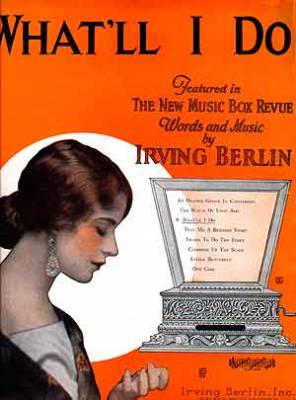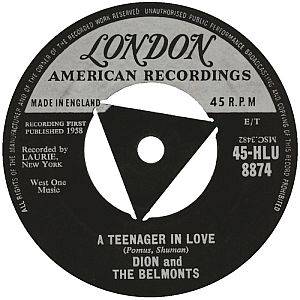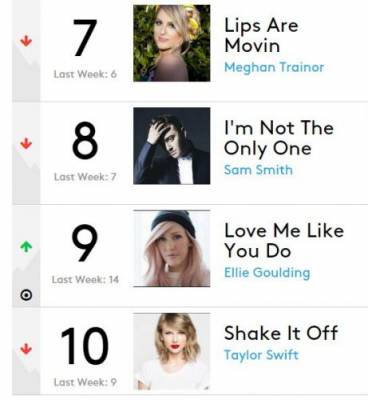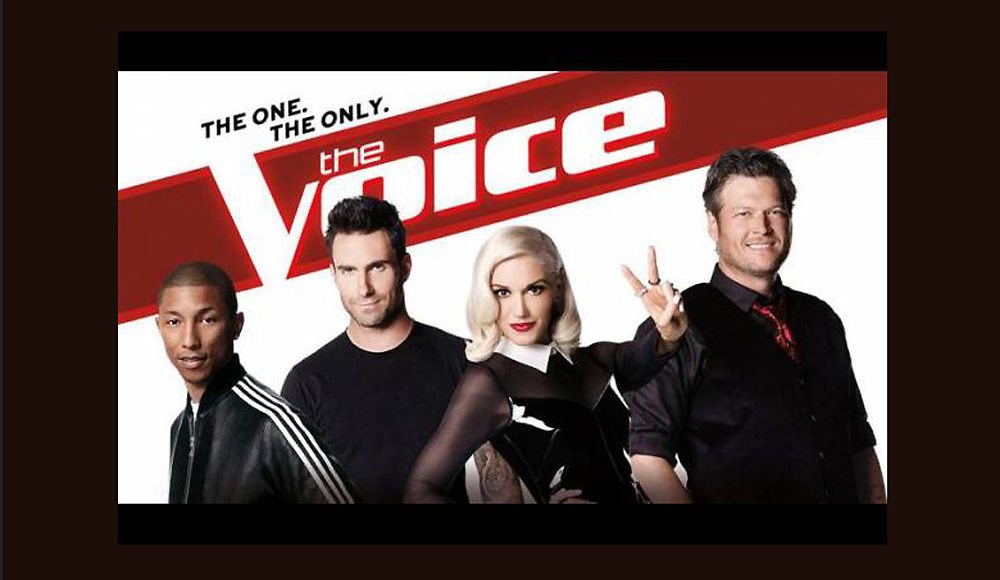Talk about being overly optimistic. My previous TheTVolution post seems positively Pollyanna-ish. The headline read: “The Voice Finally Acknowledges Songwriters.” Actually, what the December finale managed to do was exactly the opposite – they erased songwriters altogether.
We’ll get back to The Voice shortly, but the plight of songwriters is once again front and center. I was struck again during the Grammys, watching Neil Portnow (along with Jennifer Hudson and Ryan Tedder) announce the Creators Alliance, established to be an advocate and safeguard for artist rights and compensation in the face of ever-changing technology – and the artist umbrella in this case includes songwriters. The need for the Creators Alliance was made clear the following week with the release of a letter from Martin Bandier, CEO of Sony/ATV Music, which disclosed that the phenomenally popular “Happy” (a recording by The Voice coach Pharrell Williams) had generated $2,700 total in publisher and songwriter royalties from Pandora for the first quarter of 2014. The statement covered 43 million (!) streams during that period. The mind boggles – and the need for the Creators Alliance is evident. But, in fact, history tells us that the advances of technology have been slowly diminishing the contributions of the songwriter for decades now.
 On July 27th Billboard will mark the 75th anniversary of its record charts. Before then Billboard had highlighted the national “Sheet Music Best Sellers” and that was the era when the songwriter was king. Then record sales started to take over, and generations of 78s, then 45s, and then LPs were charted. If you can put your hands on almost any physical record, take a look at the label on the disc. You’ll see that the names of the songwriters were right there, usually next to or underneath the song title.
On July 27th Billboard will mark the 75th anniversary of its record charts. Before then Billboard had highlighted the national “Sheet Music Best Sellers” and that was the era when the songwriter was king. Then record sales started to take over, and generations of 78s, then 45s, and then LPs were charted. If you can put your hands on almost any physical record, take a look at the label on the disc. You’ll see that the names of the songwriters were right there, usually next to or underneath the song title.
When 8 tracks and cassettes were added to the market, the credits were still there, just in smaller type, which became even smaller with the onset of CDs and their inserts. It wasn’t until we got to the age of downloaded music that songwriters credits began disappearing all together, depending on design of the databases that serviced the various download entities.
One last blow for songwriters: music professionals could always rely on the Billboard charts to list the songwriters and publishers. While I haven’t seen the actual magazine in a while, the Billboard charts you get on line now are all very clean graphics – chart position, artist photo, song title, artist name. That’s it. No songwriters mentioned.
 Now back to The Voice. The big headline leading up to December’s Season 7 finale was that the finalists would all be performing original songs (by which this show means they have not yet been recorded, not that they are particularly original.)
Now back to The Voice. The big headline leading up to December’s Season 7 finale was that the finalists would all be performing original songs (by which this show means they have not yet been recorded, not that they are particularly original.)
Truth be told, Carson Daly did his best to make sure we were aware of the fact that these new songs (created by America’s top songwriters!) were going to be introduced on the show. His intro did acknowledge that original SONGS were a big part of the final competition of the season. “Something this season we’re really excited about,” Daly began. “Our coaches and top songwriters teamed up to create original songs for your finalists. They will debut those new singles tonight. Original material.” Are you getting the idea that original stuff was involved?
That phrase ‘America’s top songwriters’ is as close as any of the songwriters got to having a credit that night. Despite Carson Daly’s repeated promos at each break about the fabulousness of these new songs, not one songwriter was mentioned in this two hour telecast. Bad enough, right? But then the producers, editors and stars of The Voice go one step beyond and absolutely obliterate the line between those who create these songs in the first place and those who sing them.
Example one: Blake Shelton in the rehearsal footage with Craig Wayne Boyd talks about the new song he’ll be singing. “My Baby’s Got a Smile on Her Face”. This, according to Shelton, is “a song I’ve been carrying around in my back pocket for years”. Sound like he wrote it, right? That’s certainly the impression that People Magazine’s reviewer Andrea Billups came away with in her coverage of the finale.
Boyd, the lone country singer in the finals, received a huge gift from Shelton, who turned over one of his own unreleased songs, “My Baby’s Got a Smile on Her Face,” to be his artist’s first single. Shelton seemed thrilled to let it go, noting it was “a song I’ve been carrying around in my back pocket for years.”
I actually purchased all these new songs from the finale, so I can tell you that “My Baby’s Got a Smile on Her Face” was actually written by Mark Marchetti & Stephanie Jones. (Props to whoever is now handling iTunes for The Voice, because all the songs I’ve purchased do, in fact, have composer credits on them, which was not always the case.)
Next up was Matt McAndrew, one of Adam Levine’s three contestants, and Levine was quite effusive about the song he’d be performing. “So you’re doing a song called ‘Wasted Love’,” he began. “I can’t believe we found an original that is a hybrid of all the things you’ve done.” Apparently they found it under a magic tree in the forest, for all the acknowledgement given to the songwriters.
The praise for the song continued after McAndrew’s performance. “The song is really great,” Levine kvelled. “Matt McAndrew just sang his own song…it’s one of the best songs I’ve ever heard in my life….I know all the words already.” What he never mentioned at any point was that the song (which is terrific, by the way) was written by Brandon Lowry, Mike Fiorentino, Chantal Kreviazuk & Shimon Moore.
After another plug midway through the show when Carson Daly repeated that “Our coaches teamed up with top songwriters to write brand new original songs for our finalists,” we were on to Levine’s second contestant, Chris Jamison. He wasn’t quite as effusive about this song, but he obviously thought it was a winner. “This song is so legit…it’s called Velvet, and I hear Michael Jackson, I hear Bruno, so it’s contemporary in that way.” Never mentioned were the songwriters Elof Loelv, Alex Lacasse & Kellen Pomeranz.
The most jaw-dropping misappropriation of credit, though, came in Levine’s discussion of the song “Soldier,” to be performed by his contestant Damien. “I’ve worked a lot with Max Martin over the years. He’s a wonderful songwriter and an incredible producer and y’know, Max brought us this song.” Make no mistake: Max Martin is a phenomenally prolific and successful producer and songwriter. I’m sure he needs reinforced shelving to hold all the awards he’s won for the hits he’s been involved with over the last 20 years. From the Backstreet Boys to Britney Spears to Pink to Jessie J to Katy Perry and most recently, Taylor Swift’s hugely successful 1989 album (where he’s also the co-writer on several of the songs), Martin has been in the center of the music business for a while.
“Soldier” is, in fact, a very affecting song – and maybe my favorite of the night. But just to set the record straight, it was written by Johan Carlsson & Ashton Parson. Max Martin apparently brought it to Levine’s attention and he gets mentioned. The songwriters? Not so much.
Songwriters have been slipping from view in the music world for a while now and music professionals are complicit in that with the constant blurring between ‘song’ and ‘record’, so the Grammys Creators Alliance has some work to do in changing the attitudes within the industry as well. Treating songwriters as invisible and songs as though they are spontaneous occurrences disrespects the work involved in crafting a memorable song.
Some years ago I found a wonderful quote from the essayist Valerie Miner. “Most Americans romanticize art as magic,” she wrote. “We perceive literature as the result of ‘creativity’ rather than ‘creative labor,’ forgetting that writers are workers.” Songs are the literature of our popular culture, and we have forgotten that songwriters are creative laborers.
Make no mistake: I don’t expect a revolution in the way music is presented on television. I don’t expect songwriting credits to pop up with every artist’s performance on The Tonight Show or Jimmy Kimmel Live or The Late Show.
But give me a break. Can’t we expect a mention on the industry charts? Or when you’ve shaped a whole two hour show around the fact that new songs are being presented, can’t we squeeze in at least a mention of the writers of those songs? Maybe a Chiron with the title and the songwriters’ names?
Maybe not giving the credit to someone who didn’t write the song?
Something?
I’m hoping for more from Season 8 of The Voice, which begins February 23. Maybe I’m still too much of an optimist but, as I’ve said before, I’m a big fan.




